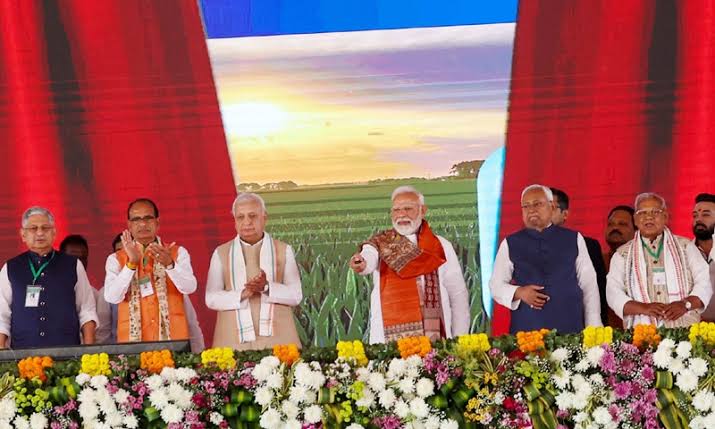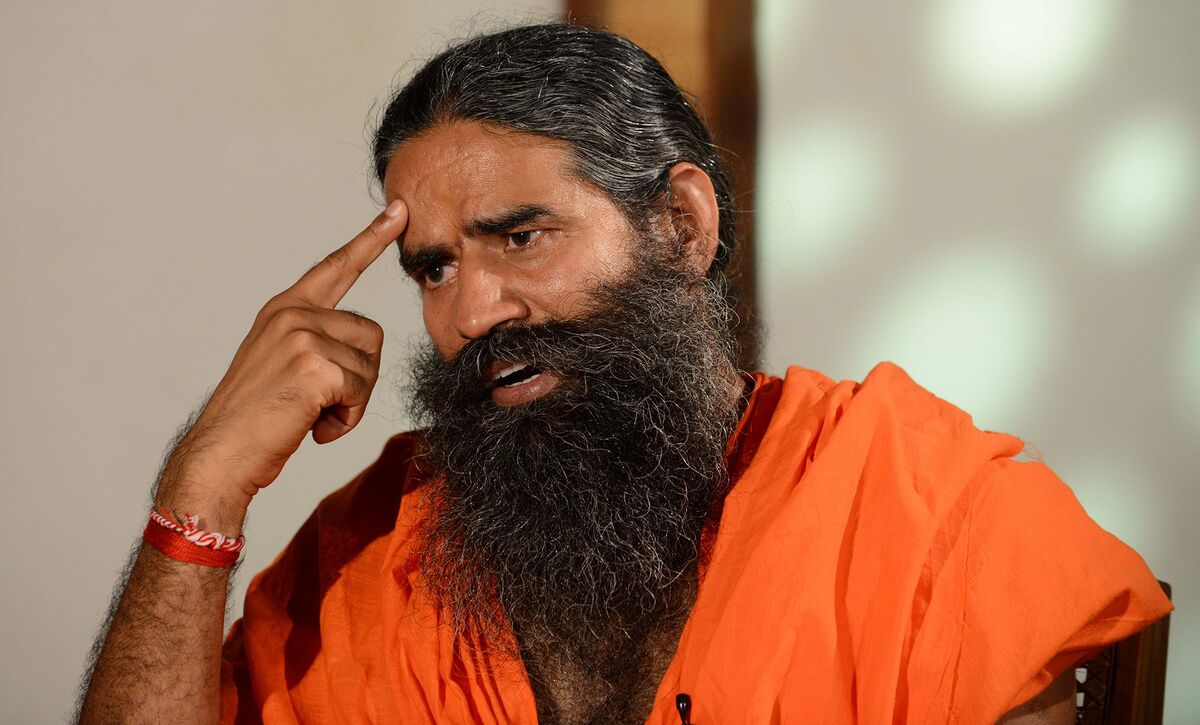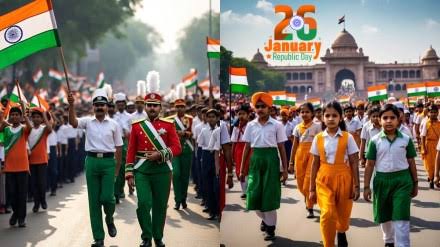Prime Minister Narendra Modi marked a significant milestone in India’s agricultural sector by releasing the 19th installment of the PM-KISAN scheme from Bhagalpur, Bihar. Addressing a large gathering, he underscored the government’s dedication to the welfare of farmers and announced a series of initiatives aimed at boosting agriculture, dairy farming, and rural development.
During the event, the Prime Minister expressed his satisfaction that the PM-KISAN scheme, which provides direct financial assistance to small farmers, continues to benefit millions. He revealed that approximately ₹22,000 crore was transferred directly into the bank accounts of farmers nationwide through the Direct Benefit Transfer mechanism, with nearly ₹1,600 crore reaching 75 lakh farmer families in Bihar alone.
Reiterating his vision for a developed India, he emphasized that the foundation of a prosperous nation rests on four pillars: the poor, farmers, youth, and women. The Prime Minister stressed that the government has worked tirelessly over the last decade to address the various challenges faced by farmers, such as access to quality seeds, fertilizers, irrigation facilities, and disaster relief. He noted that past governments failed to support farmers adequately, often leaving them to struggle during crises. However, with the introduction of the PM Fasal Bima Yojana, farmers have received insurance claims worth ₹1.75 lakh crore during times of natural calamities.
 Agricultural and dairy farming reforms have been a key focus, with Modi highlighting the rapid growth in India’s milk production. He lauded Bihar’s contribution to this success, mentioning that cooperative milk unions in the state now procure 30 lakh liters of milk daily, generating an annual revenue of over ₹3,000 crore for local dairy farmers. To further boost the sector, the government is fast-tracking two major projects: the Centre of Excellence for Indigenous Breeds in Motihari and the expansion of the Milk Product Plant in Barauni, benefiting over three lakh farmers in the region.
Agricultural and dairy farming reforms have been a key focus, with Modi highlighting the rapid growth in India’s milk production. He lauded Bihar’s contribution to this success, mentioning that cooperative milk unions in the state now procure 30 lakh liters of milk daily, generating an annual revenue of over ₹3,000 crore for local dairy farmers. To further boost the sector, the government is fast-tracking two major projects: the Centre of Excellence for Indigenous Breeds in Motihari and the expansion of the Milk Product Plant in Barauni, benefiting over three lakh farmers in the region.
The Prime Minister also turned his attention to Bihar’s thriving fisheries sector, noting its remarkable rise in fish production. Fishermen, who were previously overlooked by past administrations, are now receiving financial assistance through Kisan Credit Cards. He celebrated Bihar’s emergence among the top five fish-producing states in India and linked this progress to the Namami Gange campaign, which has successfully revived the population of the endangered Ganga dolphins.
Bihar’s silk industry was another focal point, with Modi reaffirming the government’s commitment to making Bhagalpuri silk a globally recognized brand. Efforts are underway to establish modern infrastructure for weavers, including new dyeing, printing, and fabric processing units, which will enhance the quality and reach of Bihar’s renowned tussar silk.
One of the most significant announcements was the formation of the Makhana Vikas Board. Given that Bihar is the largest producer of Makhana, the board will oversee the production, processing, value addition, and marketing of this superfood. With rising demand for Makhana in Indian cities and its growing popularity as a healthy snack, the government aims to facilitate its export to international markets.
The Prime Minister further emphasized the need for infrastructure development in Bihar, acknowledging the longstanding challenges caused by inadequate bridges and roads. He detailed ongoing efforts to construct a four-lane bridge over the Ganga River at an estimated cost of over ₹1,100 crore. Additionally, he highlighted the launch of new highways, including a ₹5,000 crore road connecting Munger, Bhagalpur, and Mirza Chauki, and the approval of a new rail line and bridge from Vikramshila to Kataria. These developments are expected to significantly improve connectivity and boost economic growth in the region.
In a historic achievement, Modi announced the formation of the 10,000th Farmer Producer Organization (FPO) in Bihar’s Khagaria district, dedicated to maize, banana, and paddy cultivation. He underscored that these FPOs are revolutionizing agriculture by eliminating middlemen and allowing small farmers to access larger markets directly. With nearly 30 lakh farmers now connected to FPOs, including a significant number of women, the agricultural sector is witnessing an unprecedented transformation.
He also revealed the government’s latest initiative, the PM Dhan Dhanya Yojana, aimed at boosting crop production in agriculturally backward districts. This scheme will identify 100 districts with low crop yields and implement targeted measures to enhance agricultural productivity.
Concluding his address, Modi highlighted Bihar’s historical and cultural significance, referencing its rich heritage as home to Vikramshila University, one of the world’s oldest centers of learning. He announced that, following the revival of Nalanda University, the government will now establish a central university at Vikramshila, reinforcing Bihar’s legacy as a hub of knowledge and education.
The event was attended by several dignitaries, including Bihar Governor Arif Mohammed Khan, Chief Minister Nitish Kumar, Union Ministers, and other prominent leaders. Their presence underscored the importance of the occasion and reaffirmed the government’s commitment to Bihar’s development.
Prime Minister Modi’s announcements from Bhagalpur reflected a broad vision for the future of Indian agriculture and rural development. With continued efforts in infrastructure, modernization, and welfare schemes, the government aims to create a more prosperous and self-reliant farming community, ensuring a brighter future for millions of farmers across the country.




